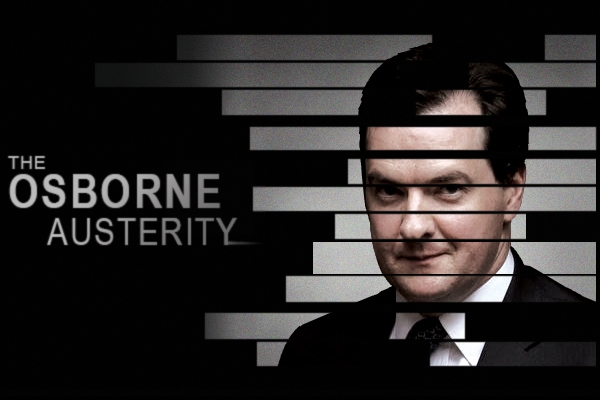Will George Osborne come ever clean about his successes? I caught up with the Chancellor in Leeds today and asked him about the Treasury’s role in the jobs miracle. I put it to him: isn’t it the case that he has decided to go slower on deficit reduction to support the jobs boom? The figures show that this is exactly what’s happened: the Treasury isn’t getting as much tax in because so much of the increase in employment is in low-paid jobs.
[datawrapper chart=”http://static.spectator.co.uk/N7pwS/index.html”]
Osborne has decided to cut these workers’ taxes, and even support their income through tax credits. You’d think a compassionate conservative would make a virtue of this and say something like:
‘Yes, the deficit is falling far more slowly than I intended. But are we paying more debt interest? No! Because a global bond bubble came along, and halved the rate of interest we had to pay. This gave us a bit more leeway, so we used it to support jobs by concentrating tax cuts for the low-paid. So yes, it was a trade-off, one we didn’t expect to be able to make five years back. But when the facts change, you change your mind. More jobs, less deficit reduction – that’s the change we made, and I think it’s the right one.’
But Osborne being Osborne, he doesn’t like to admit to having changed his mind. Nor, weirdly, does he want to admit to the Treasury’s role in the jobs boom. So here was the Chancellor’s answer to my question:
‘No, it’s been part of a balanced plan. Obviously, yes, it’s been about making sure that our public finances are in order, that our national debt starts falling as a share of our national income, that was the target I set out in that first budget in 2010. But it’s also been about making sure that work pays, and the reforms to welfare and the increases in the tax free personal allowance, and the cuts to corporation tax and the cuts to the jobs tax, national insurance, are all part of making work pay. And the decision we took to increase spending on the National Health Service every year was also part of our balanced plan.’
A 1.9 million rise in employment was not at all in his plan; we know because he published that plan in June 2010 where this features nowhere — he also expected wages to recover far more quickly: another trade-off. The jobs miracle was a surprise, as the labour market responded to his tax cuts faster than he expected. Hence the slow pace of deficit reduction, but given the social effects of long-term unemployment, the extra debt really was a price worth paying.
[datawrapper chart=”http://static.spectator.co.uk/5FIDL/index.html”]
Instead of extolling this success, Osborne devoted his first speech of the campaign to negative campaigning. He warned that Britain’s economy is in danger! There’s only 36 days left to save it! The Chancellor was so keen on this scary message that he repeated it seven times:
‘No more ifs or buts: Britain now knows. Vote for Ed Miliband and Ed Balls on 7th May, and jobs and investment and economic security will be at risk. We have just 36 days left to save Britain’s economic recovery.’
Conservative strategists have identified Ed Miliband as the weakest link in Labour’s operation, hence why David Cameron name-checked him outside No.10 on Monday and why Osborne focused today on the danger a Labour government poses to the economy. But where’s the harm in also admitting to one of the government’s greatest successes ?






Comments